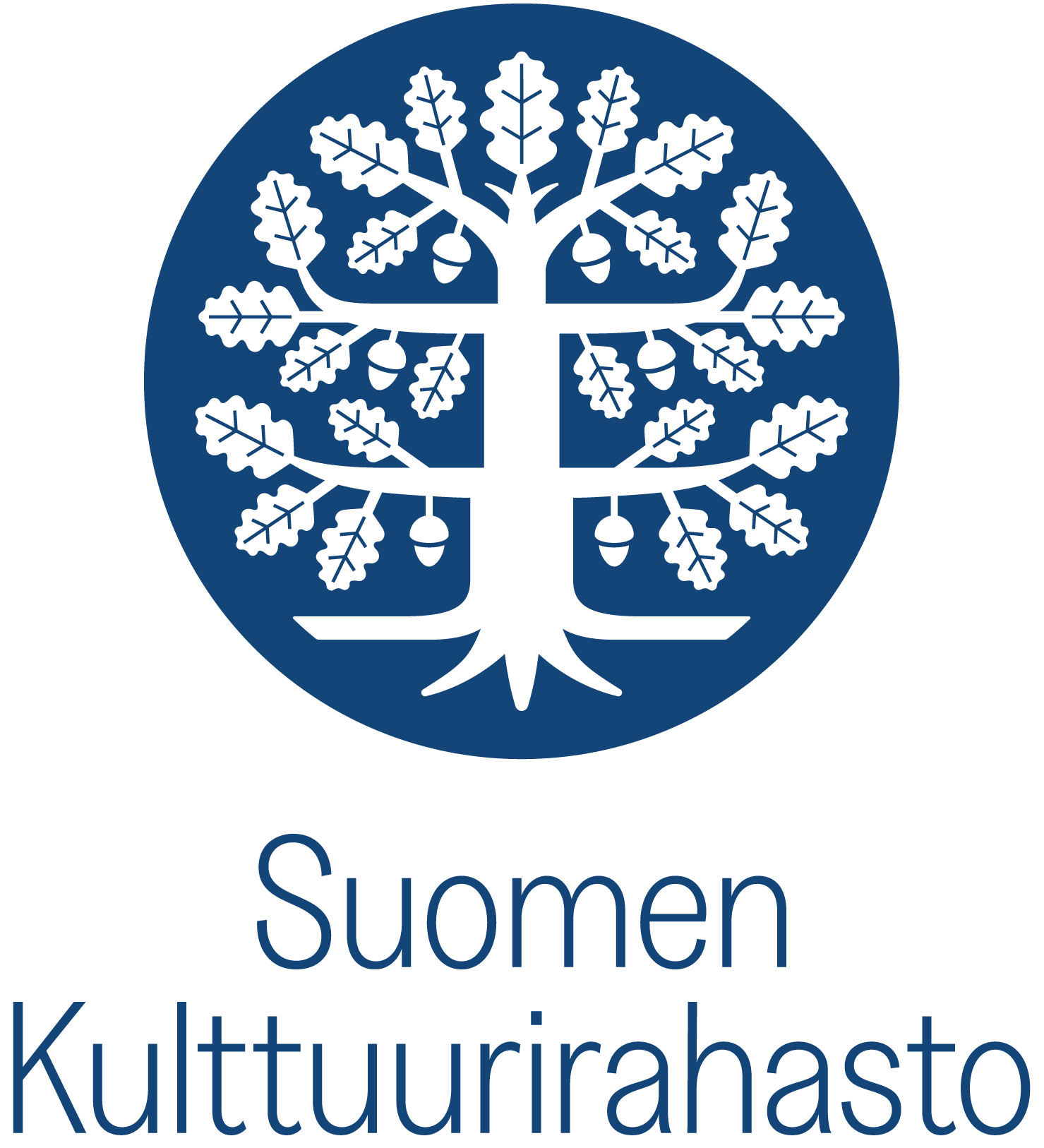News
-
3.4.2025

When green energy visions collide with local interests in the North
The bankruptcy of battery manufacturer Northvolt has attracted a lot of attention and highlighted the structural challenges that characterise the green transition in northern Sweden. The reasons for the bankruptcy are widely debated, but researchers point out that Northvolt is just one example of a broader pattern in the realisation of the transition – not only in northern Sweden, but also in other peripheral regions around the world.
The northern regions of Sweden, Finland and Greenland have been highlighted in recent years as key areas for Europe's energy transition. The vast areas, the potential to expand renewable energy production and the rich resources of minerals and critical earth elements enable the rapid establishment of battery factories, wind farms and mines.
But the open questions are many: How will the local population be affected, what is the ownership structure of the companies that set up shop, where do the profits go, and who is responsible for investments that do not turn out to be profitable?
A process driven from the outside
The current perception of peripheral regions is driven by global agendas, international investors and national strategies. Often, local politicians also enthusiastically welcome large industrial ventures, as alternatives for community development are few.
– Our research shows that the green transition in these areas is largely shaped by decisions made far away, where local people are rarely given the opportunity to have a real say.
This is according to Professor Erland Mårald, project leader of the Future Challenges in the Nordics project Peripheral Visions: When Global Agendas meet Nordic Energy Peripheries, which studies the energy transition in Greenland, northern Sweden and northern Finland.
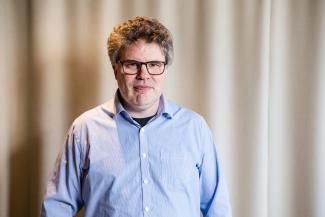
Erland Mårald. Image: Mathias Foster/Futurenordics According to Mårald, the role of local people is in practice reduced to either accepting or rejecting pre-formulated plans, without genuine dialogue on how the transition can be sustainable and fair for those living and working in the region.
– When objections arise, they are seen as obstacles to be dealt with, rather than voices to be listened to. The way the green transition is currently being implemented, it risks leading to increased polarisation and exploitation in the areas where industrial investments are taking place, instead of the sustainable development that is sought, says Mårald.
– An inclusive approach is crucial to ensure that the green transition is not only sustainable and fair, but also builds mutual trust and acts as a long-term force for community building.
Winners and losers
In its current form, the green transition creates clear winners and losers. While places like Skellefteå and Boden in Sweden can benefit from risky start-ups and economic growth, other parts of the same region are turning into pure resource providers. Here, wind farms and mines are being built without corresponding community-building efforts, such as schools, healthcare and shops.
– This not only reinforces historical patterns of exploitation, where the periphery serves national and international centres, but also creates divisions within the regions concerned, says Mårald.
The imbalance is exacerbated by what is known as ‘green colonialism’, a situation where industrial energy transition takes place at the expense of existing land use and local economies. In northern Sweden, Finland and Greenland, industries such as reindeer herding, fishing and tourism are being displaced by large-scale industrial projects. The result, according to the researchers, is increased conflict, eroded trust and a breeding ground for counter-movements and populism.
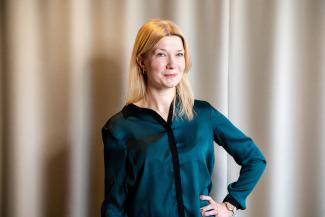
Janina Priebe. Image: Mathias Foster/Futurenordics – The transition can only be successful if green ambitions have local counterparts, shaped by local knowledge and experience. Top-down decisions need to be locally anchored, says project researcher Janina Priebe, who has specifically studied Greenland.
More information:
Professor Erland Mårald
Umeå University
erland.marald@umu.se
+4690 786 65 45Associate Professor Janina Priebe
Umeå University
janina.priebe@umu.se -
14.1.2025

Does news media stereotype immigrants?
Research project helps journalists identify prejudices associated with immigrants.
The Future Challenges in the Nordics research project “Ethnic Stereotypes Over Time - a Nordic Comparison” examines how different groups of foreign-born people have been portrayed in Swedish and Finnish news media over time. Which stereotypes are constant and which are changing, and why is this so?
The research material consists of newspapers published in Sweden and Finland between 1955 and 2020. Machine learning software has been developed specifically for the purpose of searching through the large data set and identifying news articles about foreign-born people from, for example, the former Yugoslavia, Iran, Iraq, Somalia, Vietnam and Chile. Words associated with the different groups are compared with words associated with the words ‘Swedes’ or ‘Finns’, and in this way the specific stereotypes for each group are filtered out.
“There will be both expected and surprising results. We also expect some differences between the Finnish and Swedish newspapers”, says Moa Bursell, project manager and head of research at the Institute for Futures Studies in Stockholm.
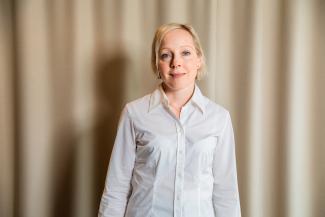
Moa Bursell. Image: Mathias Foster/Futurenordics Better understanding of stereotypes can improve journalism
The results of the research are expected to be of particular benefit to research into how ethnic stereotypes arise and change. But they may also be useful in journalism education, for example.
“Not because the project identifies journalism as responsible for the spread and maintenance of ethnic stereotypes. Journalism reflects the society and the times in which it operates. But at the same time, journalism is opinion-forming and needs to reflect on how it reports on vulnerable groups. For example, in what contexts is it necessary to mention nationality”, says Bursell.
When the final research results are published later this year, researchers will have to consider several ethically sensitive issues.
“Just as news media risk contributing to the perpetuation of stereotypes, our project risks doing the same. Talking about how groups are viewed can reinforce stereotypes instead of countering them. We hope that the project's findings will lead to a greater understanding of stereotypes as social, changing constructs that have more to do with the society that views the new groups, than with the groups themselves.”
More information about the project:
Moa Bursell, Associate Professor of Sociology and Research Leader
moa.bursell@iffs.se
Institute for Futures Studies -
31.10.2024

Residents enjoy living in areas with a bad reputation better than expected
An extensive interview study in Sweden, Finland and Denmark gives a voice to residents of disadvantaged neighbourhoods.
In the Future Challenges in the Nordics research project ”The Future of Diverse and Disadvantaged Neighbourhoods in the Nordic Welfare States — The Voices of Residents”, researchers from four Nordic universities are studying six neighbourhoods with a bad reputation in Finland, Sweden and Denmark. In Helsinki and Vantaa in Finland, Kontula and Koivukylä are studied, in Gothenburg in Sweden, Biskopsgården and Hammarkullen are studied, and in Aarhus in Denmark, Herredsvang and Gellerup are studied. All neighbourhoods are associated with at least some negative perceptions and the proportion of immigrants is higher than average in the studied cities.
The researchers are interviewing a total of around 4 800 people whose voices are not usually heard in public debate. The interviews focus on how residents perceive their neighbourhood, how they feel about it, how they relate to society in general, and whether they experience discrimination because of where they live.
“Disadvantaged areas are a highly politicised topic, especially in Sweden and Denmark,” says Peter Esaiasson, Professor in Political Science at the University of Gothenburg, who is leading the research project.
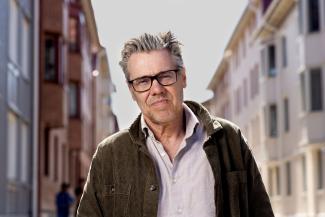
Peter Esaiasson. Image: Johan Wingborg/University of Gothenburg The research is based on extensive and long-term fieldwork, which has given the researchers a diverse picture of the areas and the residents. Interviews have been conducted both in residents' homes and in public places.
“It has been surprisingly easy to find interviewees and the fieldwork has also allowed us to reach the less educated population more than usual. The interview guide has been translated into Russian, Somali, Arabic, Swedish, Finnish, Danish and English. Sometimes family members or neighbours have acted as interpreters if the interviewer and the interviewee did not have a common language,” says Esaisson.
Residents are satisfied
The preliminary results of the research show that residents' trust in the community is not significantly lower in the surveyed neighbourhoods compared to other areas. However, many people are bothered by the stigmatisation of the neighbourhoods.
“In general, people enjoy living in the surveyed neighbourhoods, especially if they belong to the majority group. Many people know that the neighbourhood has a bad reputation, but this does not correspond to their own experiences as residents,” says Esaiasson.
There are both similarities and differences among the areas surveyed. In Finland, the areas do not differ as much from other neighbourhoods as in Denmark and Sweden.
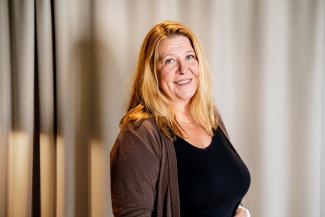
Mari Vaattovaara. Image: Mathias Foster/Futurenordics “In Kontula and Koivukylä, trust in society and authorities was high and did not differ much from the national average,” says Mari Vaattovaara, Professor in Urban Geography at the University of Helsinki.
The final results of the project will be published in 2026.
More information:
Professor Peter Esaiasson
University of Gothenburg
peter.esaiasson@pol.gu.se
+46 31 786 12 22
+46 733 52 36 12
Mari Vaattovaara
University of Helsinki
mari.vaattovaara@helsinki.fi
+358 50 415 4861 -
18.10.2024

People over 75 face significant challenges as health services go digital
A project within the Future Challenges in the Nordics research programme highlights the concrete challenges that older people face when using digital health services. The digitalisation of care work is also changing the job description of professionals, and there isn’t necessarily any training available for this.
The research project "Demography and Democracy – Healthy Ageing in a Digital World (HAIDI)" examines the digitalisation of social and health services in three Nordic countries from the perspective of the ageing population. The aim is to find out whether citizens' equal rights and opportunities to good health are being realised in a context where services and society are largely digitalised.
Data has been collected through interviews with people aged 75 and over about their experiences of using digital health services. In Finland the study focuses on people living at home, in Denmark on people living in nursing homes and in Sweden on older people in both groups. The survey will bring to the fore experiences and voices that are not usually heard in the social debate.
"In all three countries surveyed, older people are encouraged to take responsibility for their own health. However, there are differences in the stage each country is at in the digitalisation of social and health services," say Elisa Tiilikainen, Associate Professor at the University of Eastern Finland, and Hanna Varjakoski, Postdoctoral Researcher at the University of Eastern Finland.
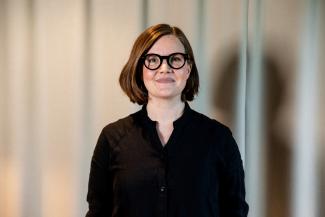
Elisa Tiilikainen. Photo: Mathias Foster/Futurenordics 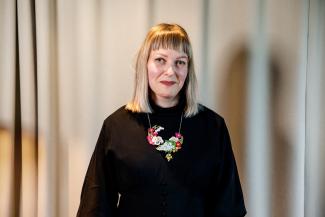
Hanna Varjakoski. Photo: Mathias Foster/Futurenordics Digital services need to be personalised
In policy-making, digital services are strongly associated with the assumption that they improve accessibility and involve citizens in monitoring and managing their own health. However, the results of the project show that there are many challenges in using digital health services from the perspective of an ageing population.
Interviews revealed that even when older people have the basic skills to use other digital services, the digital health services cause problems.
"Public health websites are often perceived as poorly designed and difficult to use. Many people find it difficult to find them," say Tiilikainen and Varjakoski.
In addition, many older people are used to face-to-face interactions and find digital services remote and impersonal. Digital services also often lack real-time communication. Researchers argue that digital health services should be designed from the outset with the user in mind, including specific needs related to ageing and functional capacity.
Digitalisation is changing the way care works
Care professionals working with older people have also faced challenges as services become digital.
"It has been surprising to find that, for example, there is not necessarily any training on how to do remote home care. Digital care has changed the nature of work significantly and it is important that it is also taken into account in the training of professionals," Varjakoski and Tiilikainen say.
According to the study, the design of public digital services is lagging behind private services. Poor service design affects the user experience and reduces the willingness to reuse services.
"If we want to increase the use of digital services, their accessibility and usability should be significantly improved," Varjakoski and Tiilikainen say.
A total of 71 elderly people and 39 professionals working in social services for the elderly in Finland, Sweden and Denmark were interviewed for the study. The final results will be published in 2025.
More information:
Elisa Tiilikainen, Associate Professor
University of Eastern Finland
elisa.tiilikainen@uef.fi
+358 50 413 4680Hanna Varjakoski, Postdoctoral Researcher
University of Eastern Finland
hanna.varjakoski@uef.fi
+358 50 304 1194 -
13.12.2021
From digital border control to a new wealth elite – eleven projects have been selected by the research programme Future Challenges in the Nordics
Eleven projects have been selected for funding as part of the research programme, Future Challenges in the Nordics – People, Culture and Society. The projects represent everything from digital health and law to climate research and cultural studies. The total amount of financing is about 10.5 million euros.
Future Challenges in the Nordics is a seven-year research programme that stimulates research within humanities and social sciences in the Nordics. The programme focuses on the large societal challenges of the 21st century and how those challenges are understood and handled within the Nordic societies. During the spring, the programme received 449 applications for funding and now the final selection of 11 applications has been made.
The research programme emphasises multidisciplinarity and cooperation across national borders in the Nordics. Researchers from Finland, Sweden, Norway and Denmark will participate in the 11 selected projects, and around 30 research disciplines will be represented. Tom Moring, the chairman of the programme’s steering group, is very satisfied with the projects that are financed.
“The chosen projects are multidisciplinary and they combine social sciences and humanities in a new way. They also have a clear relevance for society and represent a wide range of research disciplines. The interest in the programme among researchers was great and the applications were of such a high quality that all of the financiers chose to increase their original funding. In the last stretch of the application process we also welcomed a new financier, the Kamprad Family Foundation.”
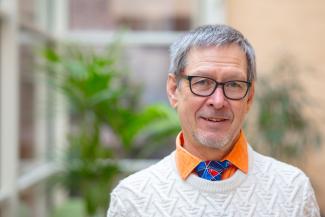
Tom Moring. Image: Janne Rentola/SLS The research programme is funded by the Finnish foundations The Society of Swedish Literature in Finland, The Swedish Cultural Foundation in Finland, The Finnish Cultural Foundation and Stiftelsen Brita Maria Renlunds minne. In Sweden, Riksbankens Jubileumsfond and The Kamprad Family Foundation are funders. The aim of Future Challenges in the Nordics is for scientifically sophisticated research undertaken under the auspices of the programme to also concretely benefit society.
-
2.12.2021
The Kamprad Family Foundation for Entrepreneurship, Research & Charity will join as a funder in Future Challenges in the Nordics
The research programme Future Challenges in the Nordics – People, Culture and Society is getting a sixth funder as The Kamprad Family Foundation for Entrepreneurship, Research & Charity from Sweden joins. The programme will finance research related to the great societal challenges of our time. All programme funders have decided to increase their financial contributions and total funding now stands at about 10.5 million euros.
Future Challenges in the Nordics is a seven-year programme for research within humanities and social sciences in areas that pose major social and cultural challenges. The programme’s main goal is to stimulate research across national and disciplinary boundaries and produce results that will concretely benefit society.
Finnish foundations that are providing funding for the programme are The Society of Swedish Literature in Finland, The Swedish Cultural Foundation in Finland, The Finnish Cultural Foundation, and Stiftelsen Brita Maria Renlunds minne. In Sweden, Riksbankens Jubileumsfond and now The Kamprad Family Foundation.
“We are happy to participate in the research programme, Future Challenges in the Nordics. Together, we can help support research that can make a difference by providing knowledge to society and value for citizens and policymakers, while strengthening cooperation among funders in the Nordics,” says Lena Fritzén, Executive Board Member for The Kamprad Family Foundation.
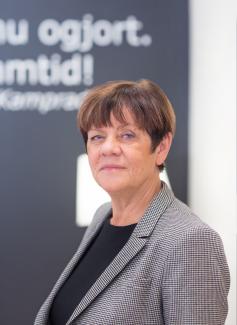
Lena Fritzén, Executive Board Member for The Kamprad Family Foundation. The Kamprad Family Foundation was founded in 2011 by Ingvar Kamprad and his family to support, stimulate and reward education and scientific research to promote entrepreneurship, the environment, skills, health and social development. The foundation puts a heavy emphasis on the belief that the results of research and education should benefit many people quickly and cost-efficiently.
“We welcome The Kamprad Family Foundation as a funder of the research programme with joy and pride,” says Christer Kuvaja, coordinator of the research programme and Head of Research at the Society of Swedish Literature in Finland. “The fact that we have a new financial contributor and that the other funders want to raise their contributions shows that the research we will conduct within the programme is of a high quality and also necessary.”
The research programme was originally going to fund 6–10 projects with up to one million euros per project. After the application process during spring and summer, the financiers could see that there were so many high-quality applications among the 449 received that they wanted to raise the amount of funding. Now the total has reached about 10.5 million euros.
The projects that will receive financing within the research programme will be announced in the near future.




